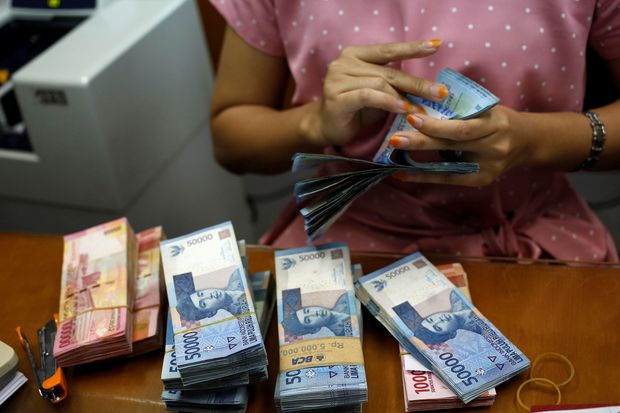
JAKARTA: Indonesia's finance minister said on Tuesday the government was prepared to take "strict corrective" measures to control swelling imports as policymakers scrambled to contain a slide in the rupiah currency.
Finance Minister Sri Mulyani Indrawati said a 7.5% import tariff would be applied to 500 consumer goods, including those bought online, in a bid to curb imports.
In addition, she said energy projects at state companies that require a lot of imports would be delayed.
"With these, we hope our current account deficit ... can be lowered significantly," Mrs Indrawati told a news briefing after a cabinet meeting.
She made the announcement after President Joko Widodo urged his ministers to make "real progress" to reduce the current account deficit and maintain the rupiah exchange rate at "a fair level".
"Although we understand they will affect several sectors, these stabilisation measures ... will maintain Indonesia's economic stability to face foreigners' perception against the condition in emerging markets," Mrs Indrawati added.
Indonesia has seen a market selloff intensify after a report on Friday showed its current account deficit had widened to 3% of GDP in the second quarter, the highest in nearly four years.
After plunging by more than 1% on Monday, the rupiah on Tuesday hit its weakest level since October 2015, at 14,630 a dollar, before recovering slightly.
The yield on the benchmark 10-year government bond was 8.007% on Tuesday, the highest since December 2016, as investors were also spooked by the currency turmoil in Turkey.
Indonesia's stock benchmark fell to its lowest in over a month after losing around 5% so far this week.
Indonesia's central bank intervened to defend the rupiah on Monday and again on Tuesday conducted auctions for cheaper foreign exchange swap contracts to reduce hedging costs.
Bank Indonesia (BI) will expand its swaps to not only US dollars, but also euro, yen and yuan daily to allow commercial banks to reswap any contract they offer to corporate clients in those currencies, governor Perry Wariyo told the news briefing.
BI is due to announce its benchmark interest rate on Wednesday. It has raised the rate by 100 basis points since mid-May to defend the rupiah, but is expected to hold, a Reuters poll showed.
A majority of analysts forecast BI would hold, but five who initially had pencilled in a hold changed their views to expect a 25-basis-point hike after the rupiah's fall.
BI has spent billions of dollars to defend the currency. Foreign exchange reserves had declined $13.7 billion from February through July, as BI sought to stabilise the rupiah.
Analysts say running a current account deficit is fine as long as a country attracts enough foreign direct investment (FDI). But Indonesia funds its gap with portfolio investment, since it does not receive enough FDI.
On Tuesday, the investment board reported FDI into Indonesia contracted for the first time since at least 2011 in the second quarter from a year earlier.
The investment board's chief, Tom Lembong, attributed the decline to project suspensions as investors remain cautious on the financial and political outlook. Indonesia will hold parliamentary and presidential elections in 2019.
The government previously announced a plan to widen the use of biodiesel starting September and delay some infrastructure projects to reduce imports.
Separately, energy ministry spokesman Agung Pribadi said the government is drafting a regulation to require oil contractors to sell crude output to state energy company Pertamina to help support the rupiah.
Contractors, such as Chevron and Exxon Mobil, currently split their crude output with the government and are allowed to export their share.